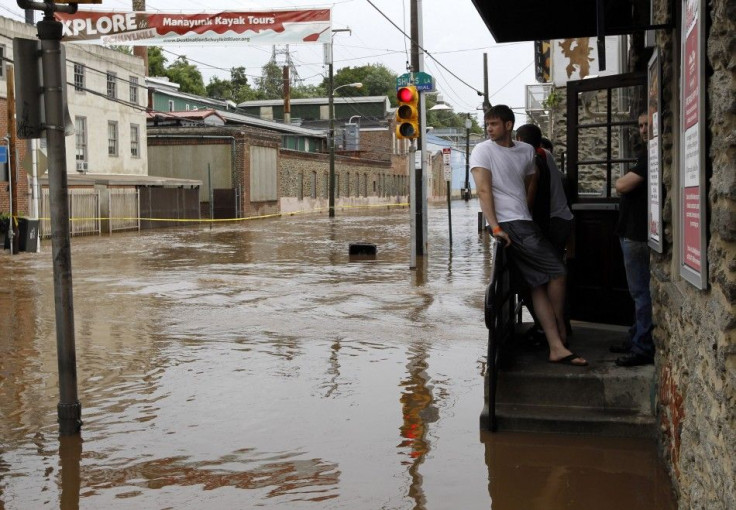Hurricane Irene Damage: Will Insurance Cover It?

The costly process of rebuilding after Hurricane Irene promises to be complicated by the fact that much of the damage was caused by flooding and will not be covered by homeowner insurance.
While there is no definitive estimate for the price of repairing Irene's damage, the fact that the storm pounded such a large swath of the East Coast means that the cost could approach $10 billion. Insurance companies are bracing for a deluge of claims, but soaring deductibles and a high level of flood damage might mean they might end up covering less than 40 percent of the net costs, according to an analysis by Kinetics Analysis Corporation cited in The New York Times.
Wind/Flood Damage Technicality May Complicate Claims
People seeking recompense for the storm will run up against one of the most contentious issues in insurance: the difference between wind damage and flood damage. The former is covered by homeowners insurance, the latter is not. That discrepancy is likely to produce a small storm of legal battles over payment.
Wayne Lee, a lawyer who represented insurers defending class actions after Hurricane Katrina, told Thomson Reuters that the murky relationship between powerful winds and rampaging water was extensively litigated. As with Irene, much of Katrina's destruction came from storm surges, bursts of water churned up by hurricane winds. In Louisana, Lee said, courts treated storm surges as flood damage.
Courts, at least in Louisiana, said a flood is a flood, Lee said.
Complicating the issue is the fact that the vast majority of flood insurance comes from the National Flood Insurance Program, which is administered by the Federal Emergency Management Agency (FEMA). That program will come under immense strain at the same time as FEMA is grappling with a severe budget shortfall and Congress squabbles over how to fund the agency. But for the most part, it is the only option for stricken consumers.
What I do regret tremendously is because the federal government can undercut the private sector, it is now the only insurer in the floodplain management arena, Joe Allbaugh, the former director of FEMA under President George W. Bush, told Reuters. It spends most of its time in the red. That's because it's another government program (where) the premiums that are charged are way under market value, in my opinion.
J. Robert Hunter, Director of Insurance for the Consumer Federation of America, warned homeowners to be vigilant with their insurance companies to ensure that that they receive a full and fair settlement, noting the claims fights that followed Katrina.
Families will have to dig deeper into their pockets because insurers have been steadily increasing hurricane wind coverage deductibles and imposing other policy limitations, Hunter said.
© Copyright IBTimes 2024. All rights reserved.





















